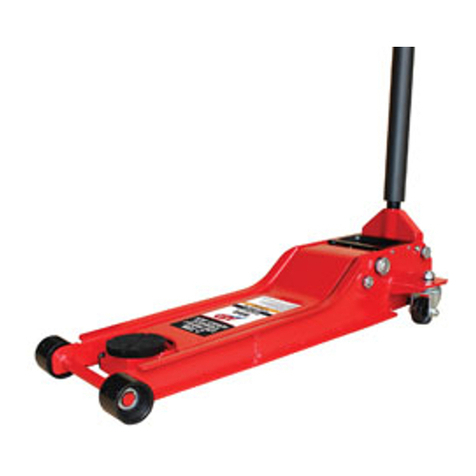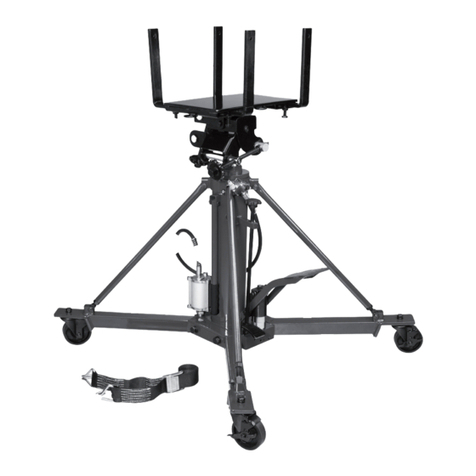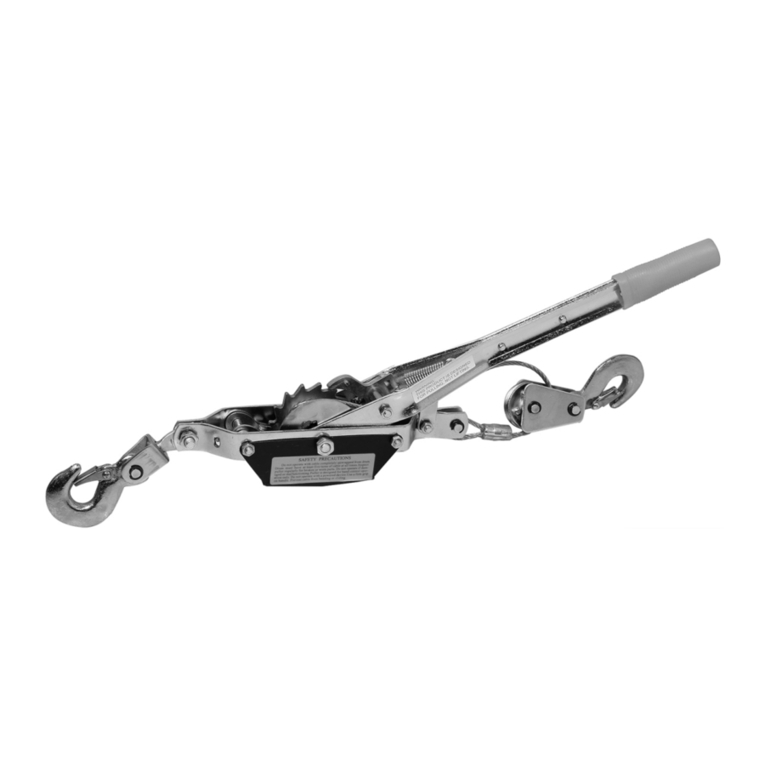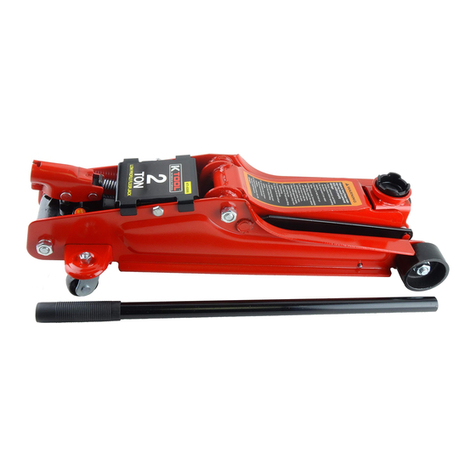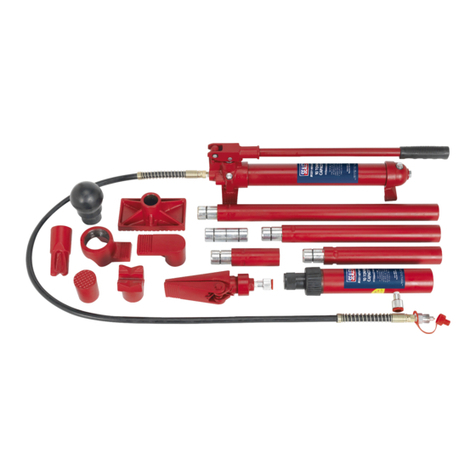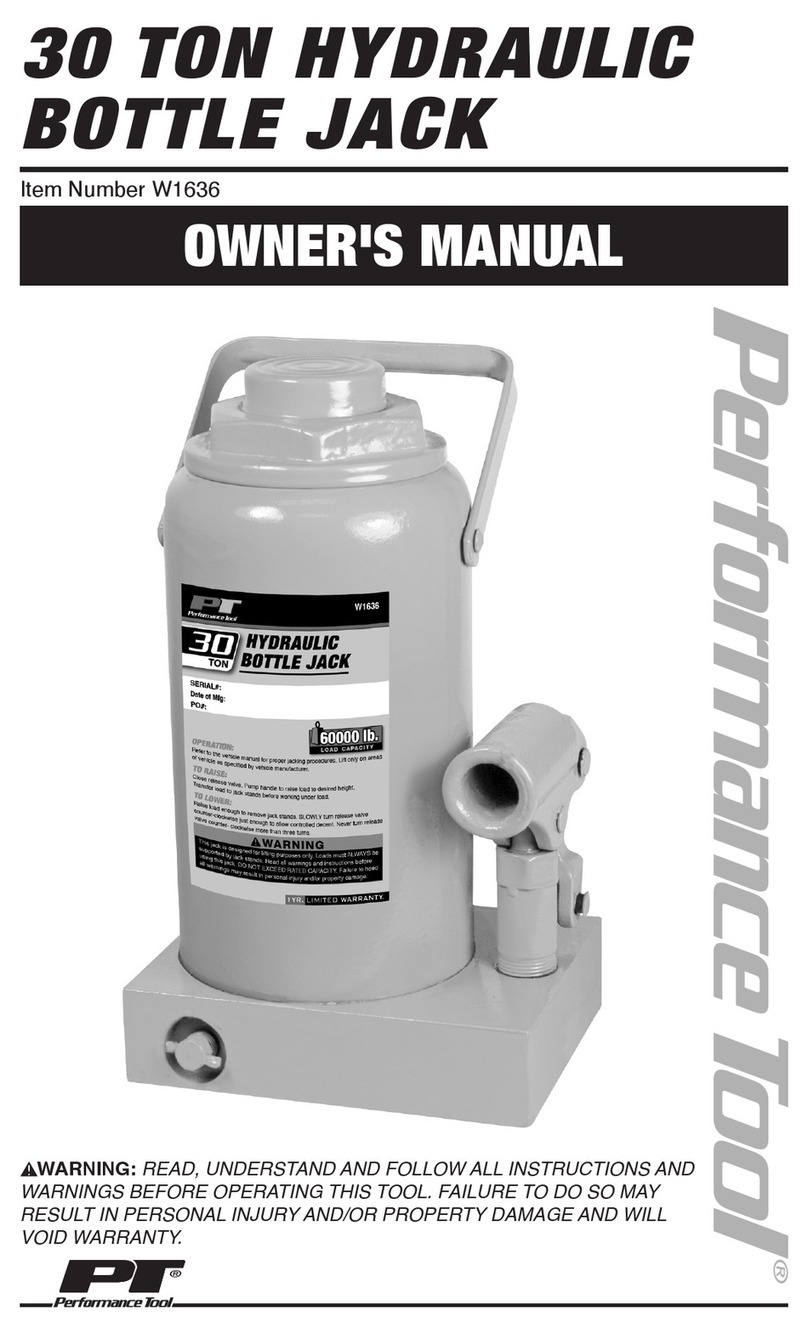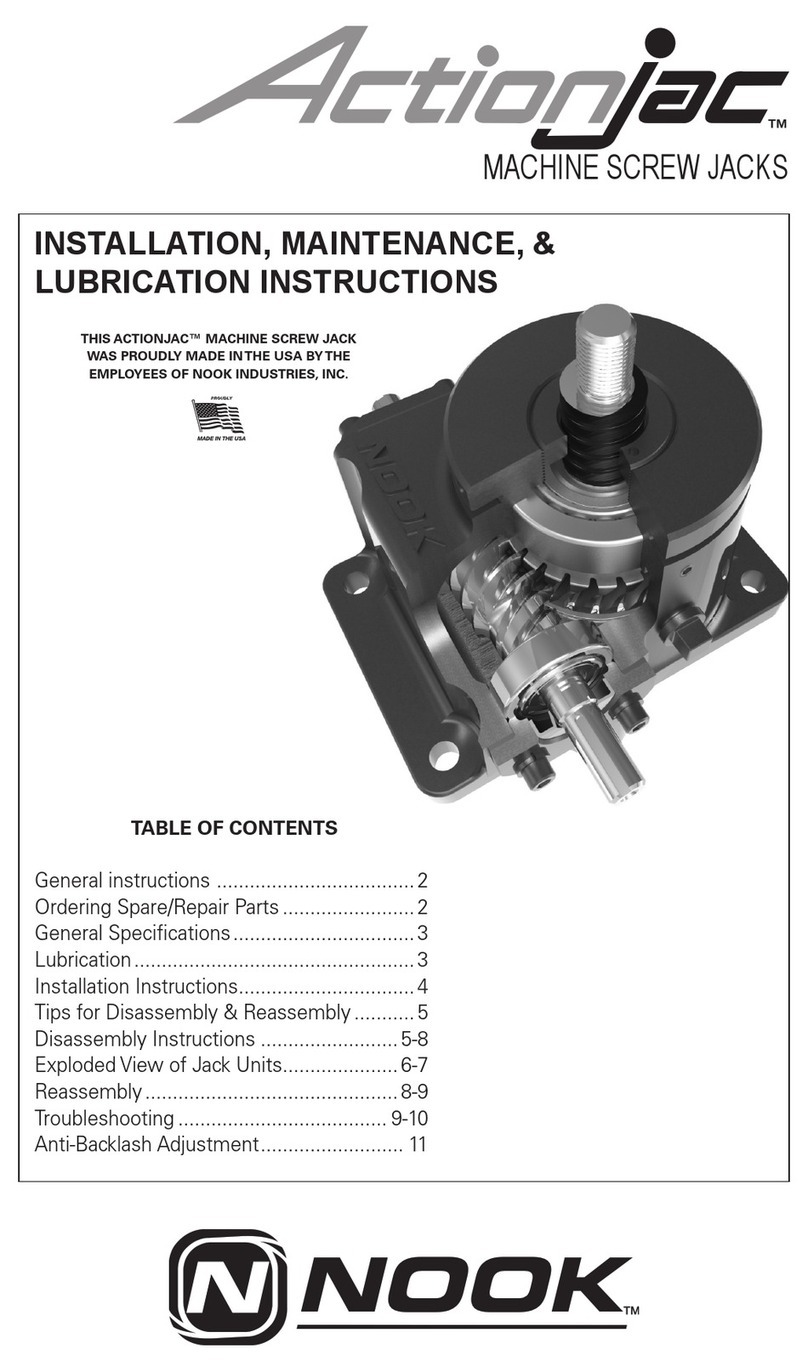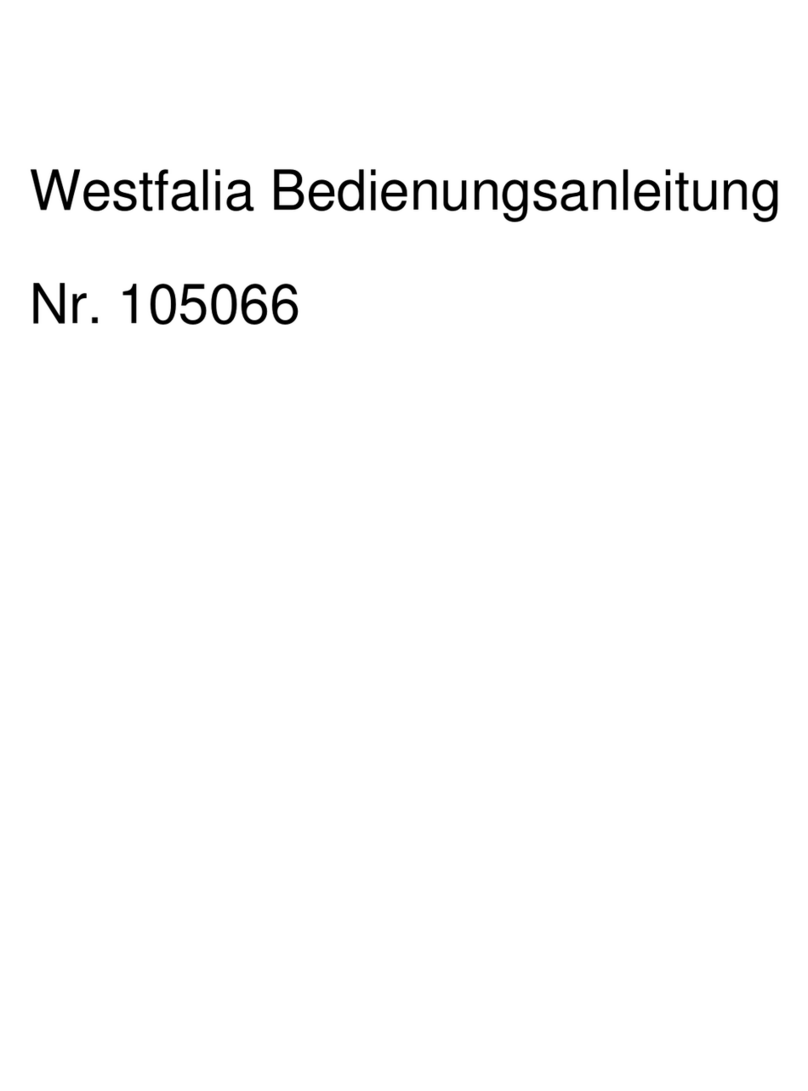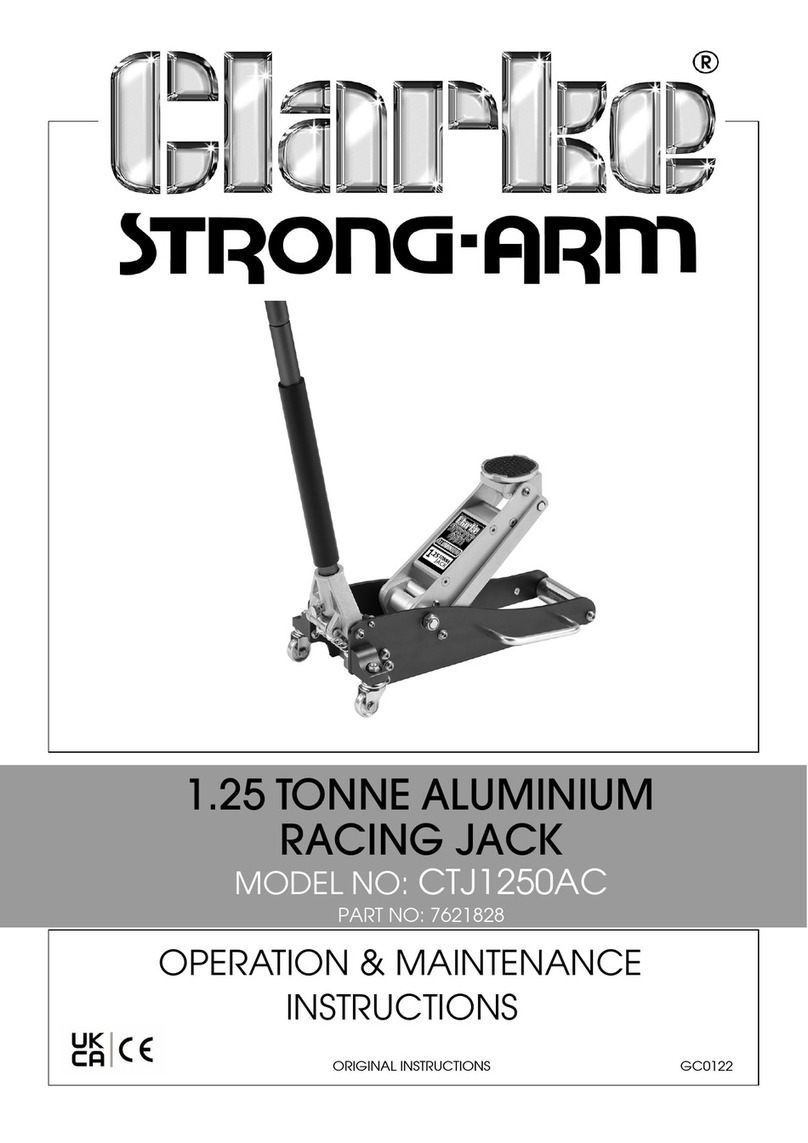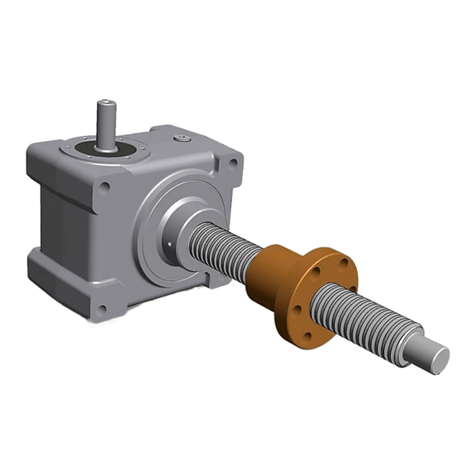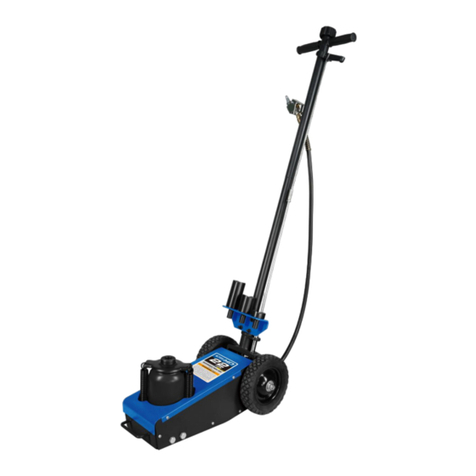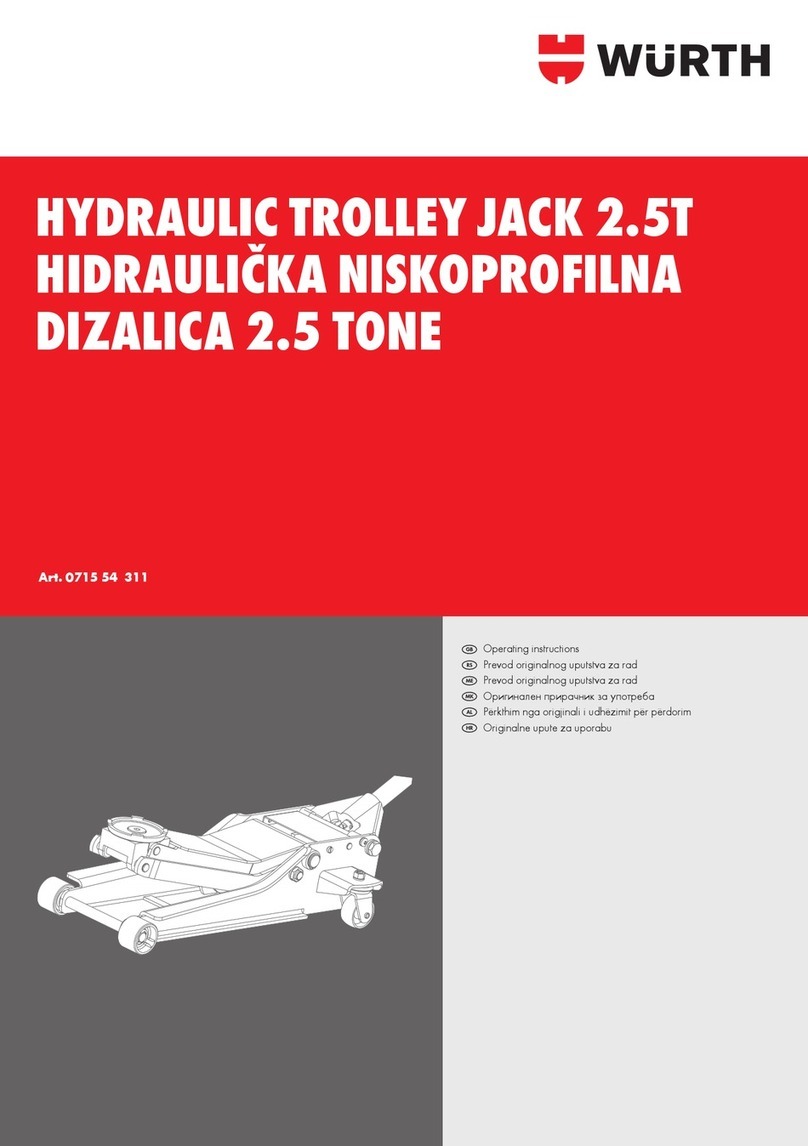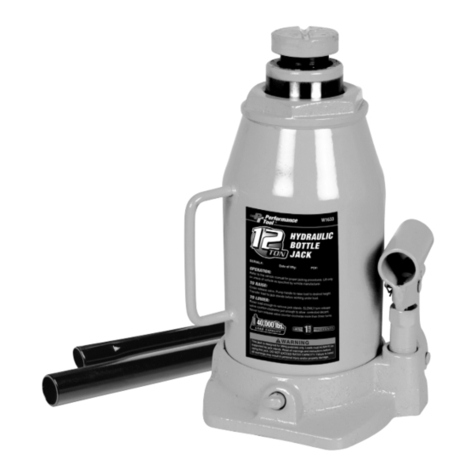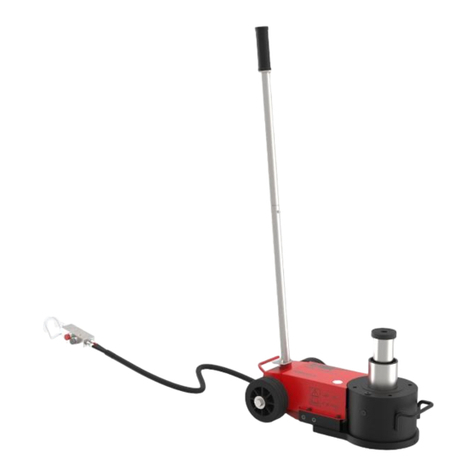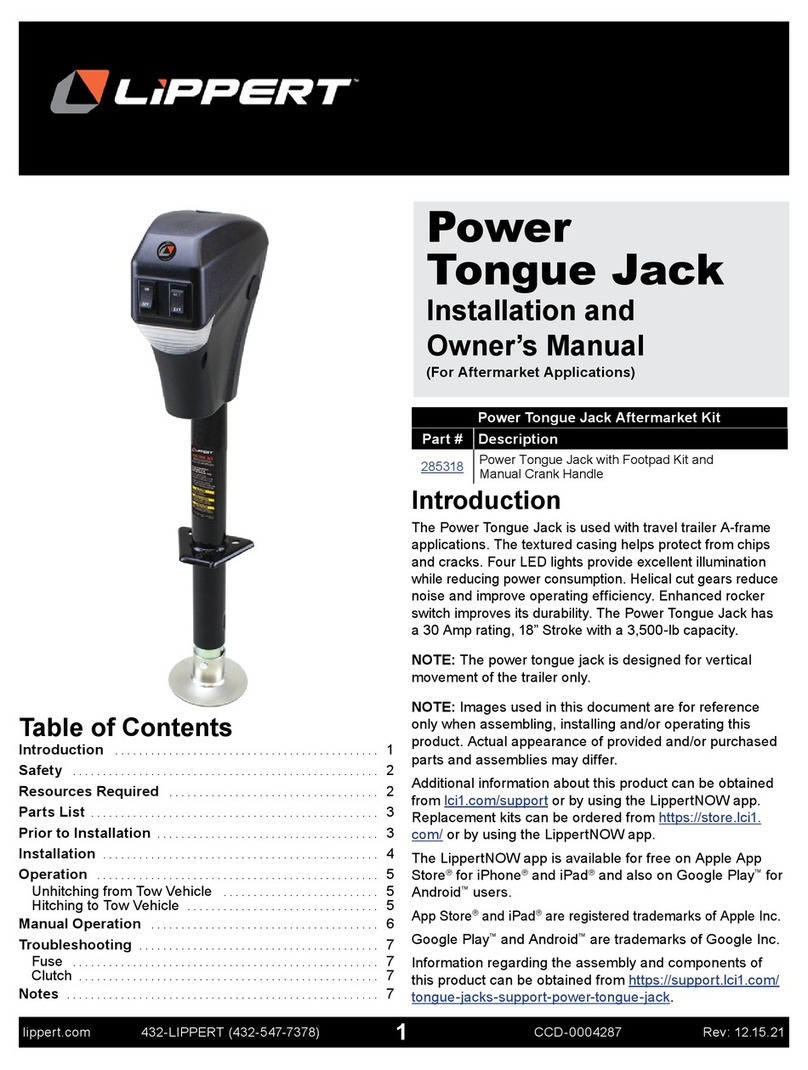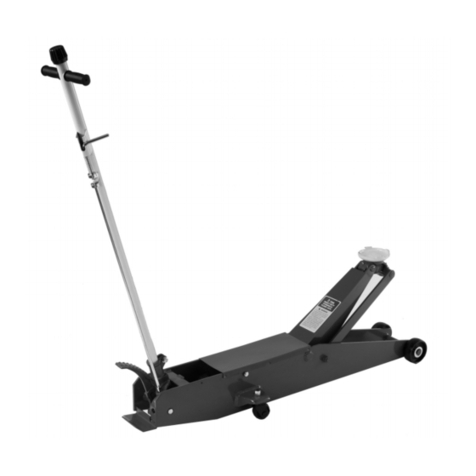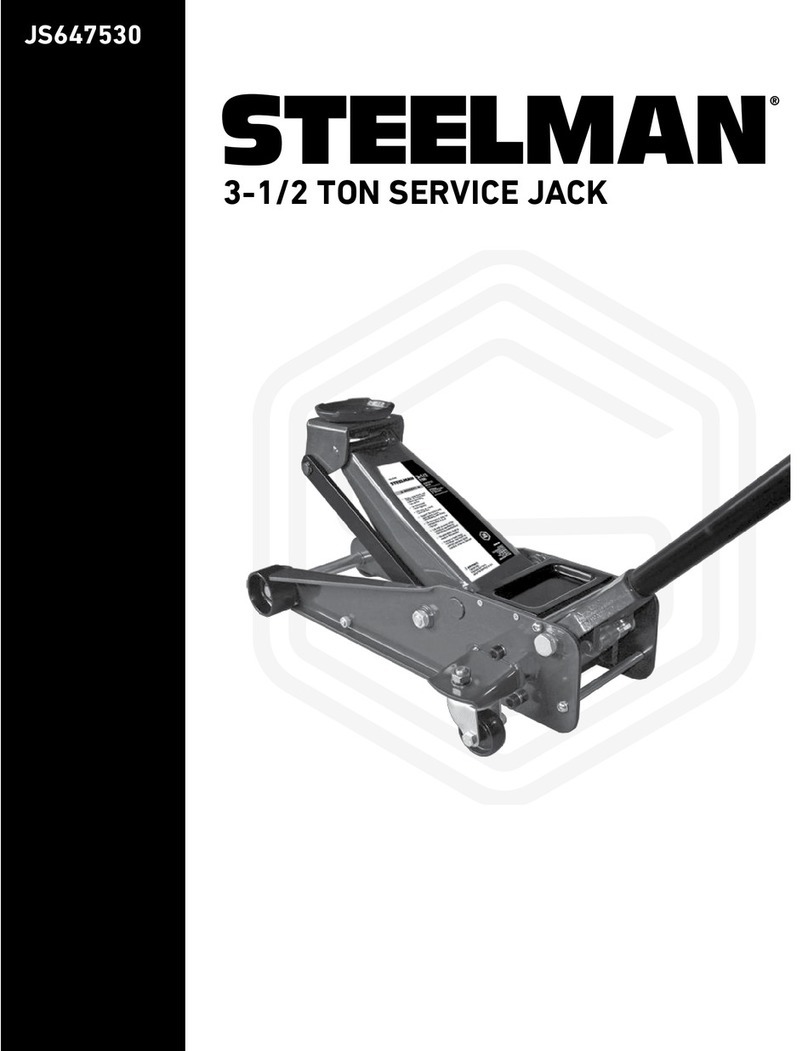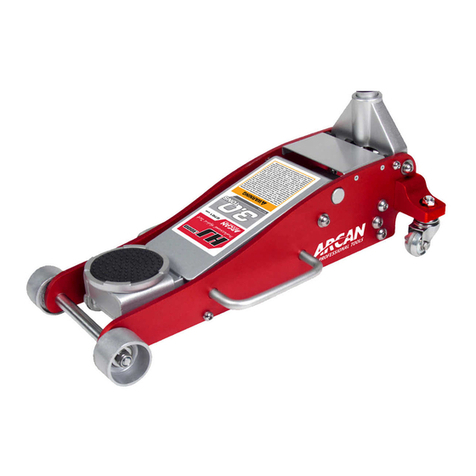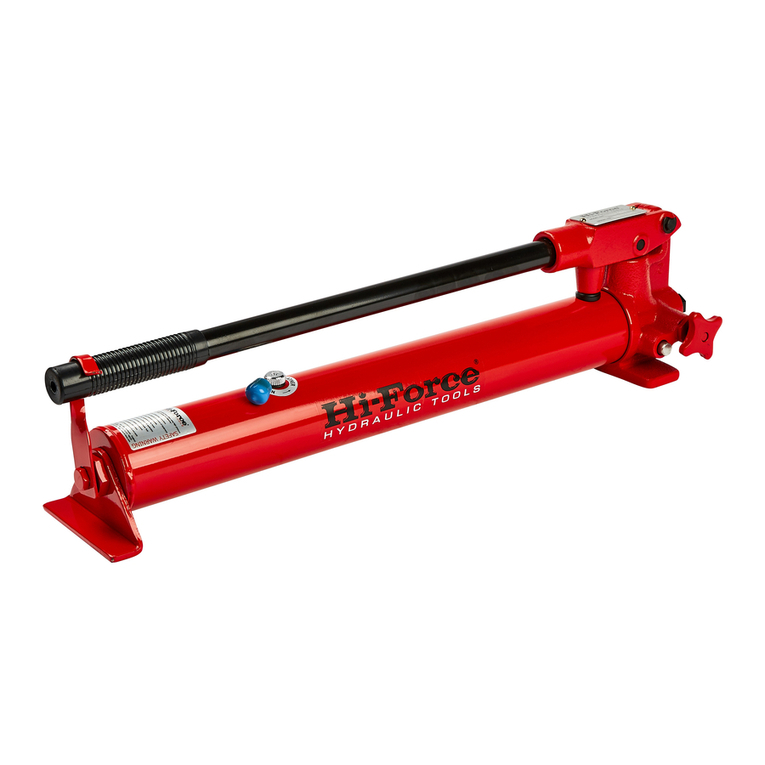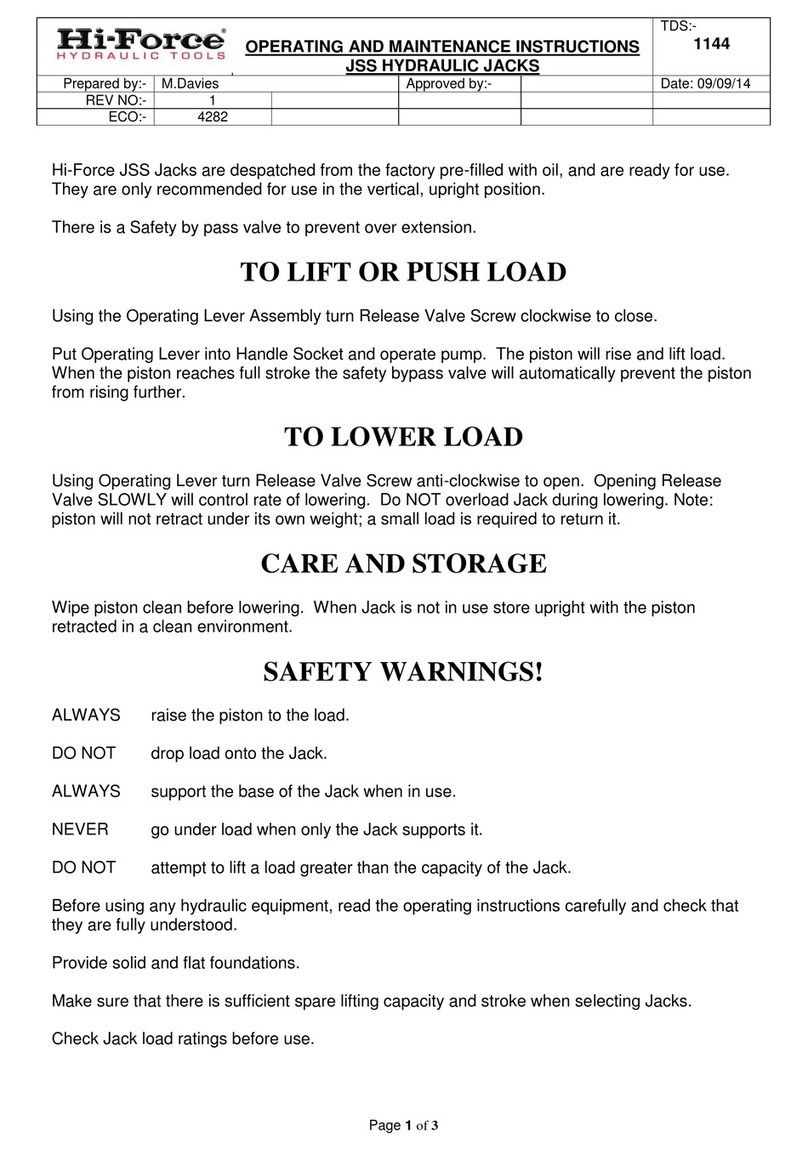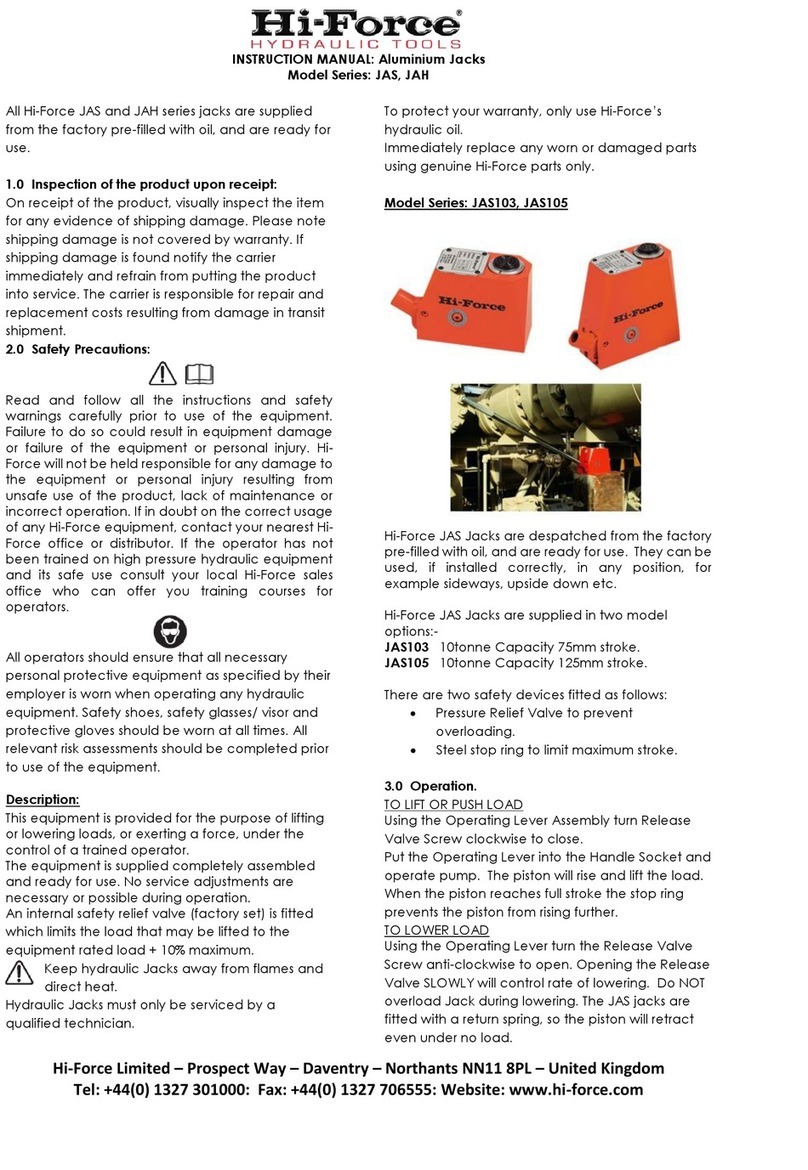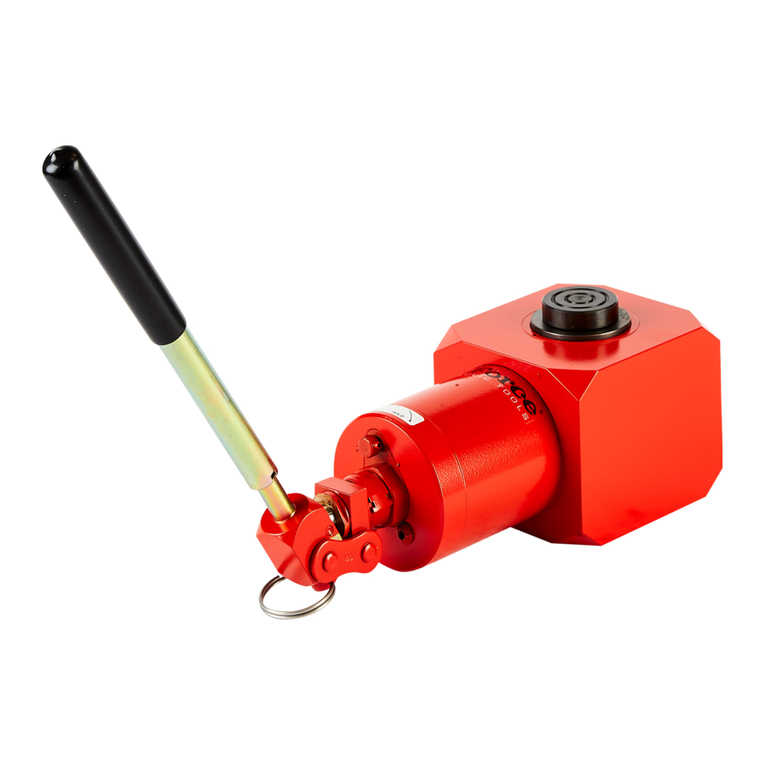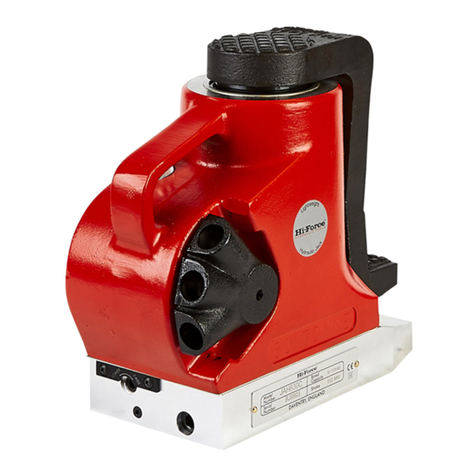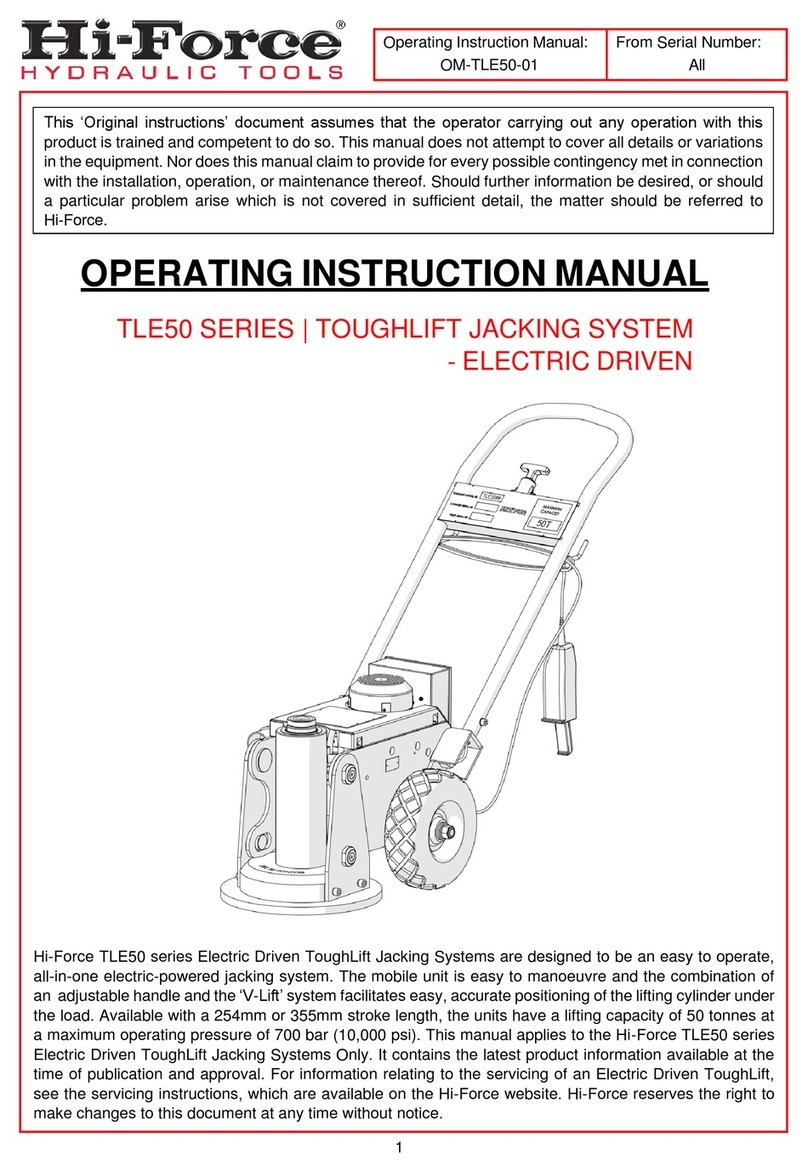4
•NEVER handle a pressurised hydraulic hose. Hydraulic fluid escaping under pressure from a
ruptured hose can penetrate the skin and lead to a significant medical emergency, and in some
cases, death. Should this incident occur, seek out medical attention immediately.
•Seek medical attention immediately if a hydraulic injection injury (no matter how minor) occurs.
•The system operating pressure MUST NOT exceed the pressure rating of the lowest-rated
component in the system.
•Only use hydraulic tools/cylinders in a complete and tested, coupled system. NEVER attempt to
use a tool/cylinder that is not correctly coupled to its operational pump. NEVER pressurise
uncoupled couplers.
•NEVER attempt to disconnect a hose from a hydraulic system until the system’s pressure has been
completely released. Doing so can result in that pressure becoming trapped within the system and
relieving trapped pressure can be dangerous.
•Loosening a hydraulic fitting under pressure can result in the escape of hydraulic fluid at high
pressure, which can penetrate the skin and cause significant injury or death.
•NEVER attempt to solve, or clean-up leaks in the system while the system is pressurised.
•Immediately replace any worn or damaged parts using genuine Hi-Force parts only.
•DO NOT use any hydraulic equipment if you are under the influence of alcohol, drugs or medication.
Lack of attentionwhilst operating high-pressure hydraulic tools canresult in personal injury or death.
Failure to observe and obey the following safety precautions could result
in property damage, equipment damage or minor/moderate personal
injury;
•NEVER lift, carry or move any hydraulic components by the hose or hoses connected to them.
•Avoid damaging hydraulic hoses. ALWAYS route hoses to ensure that they are free from sharp
bends and kinks. Using a sharply bent or kinked hose will result in severe back-pressure, which can
lead to hose failure.
•NEVER use a coupler/s to lift, carry or position a tool.
•Servicing of hydraulic equipment must only be undertaken by a qualified technician.
•DO NOT drop or place heavy objects on a hydraulic hose, as this may cause
internal damage, which could result in rupture of the pressurised hose. A
ruptured hose could cause significant damage to components and possible
severe injury to personal operating nearby.
•DO NOT let familiarity gained with any hydraulic tools allow you to become complacent.
Complacency with any tooling can result in a lack of discipline toward working guidelines and safety
principles.




















